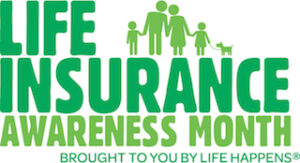Regardless of how qualified a lead or referral is, you should still expect to hear an objection or two before you write an application. The degree to which you are prepared to deal with that objection can determine whether you will have made a sale or a wasted trip.
On rare occasion the objection is nothing more than the prospect’s concern about being taken for granted; however, an objection is normally an indication that they are not yet sold on the product, or you, the agent. The way you present yourself to your prospect, and the manner in which you present your products and message will determine to what degree the prospect’s objection is their lack of confidence in you or whether they just want to be sure they are making the right decision before they make a buying commitment to you.
NOTE: This post can help you get past almost any objection; however, it is important to accept that there is a significant difference between OBJECTIONS and CONDITIONS. An OBJECTION is a concern or reluctance raised by an individual that is capable of making a purchase. A CONDITION is a set of circumstances that make it impossible for the sale to be made at that time. If you understand the difference you will know when a sale is possible and when it is not.
Every objection a prospect presents can be refined down to one of three issues:
- Trust
- Value
- Need
Many times Need is an extension of Value because the prospect does not yet understand the Value to them of the service you are offering. Once you establish Value it will be much easier to establish Need. This process works the same way when you go from Need to Value.
Even after you have established Value and/or Need, you must still have their Trust in order to make the sale. TRUST IS THE MOST COMMON OBJECTION. If you do not have your prospect’s trust, they will not see the value of what you are offering.
The following is a list of common objections you are likely to hear and suggestions to overcome them. The relevant issue will be in parenthesis beside them.
- “We want to think about it” (Trust) (Value) (Need)
What they are really telling you is that they have not yet decided that buying from YOU is right for them. This is an easy objection to overcome by getting them to focus on what their needs are and which of your products will serve that need. “Fine, which one of the plans I have shown you are you thinking about?” Be persistent until they give you an answer and then use the “No Obligation” close.
- “We want to shop around” (Trust)
Again, what they are telling you is that they have not yet accepted YOU. The reality is that most people do not want to deal with life insurance and the unpleasant associations it has any more than necessary. If you can make them feel comfortable enough, they will buy it, tonight. The “NO OBLIGATION” close is very effective with life and disability insurance and should come out of your mouth in a smooth, unrehearsed, even manner that sounds like you have been using it for years.
“Fine, let me explain how you can be protected tonight, without any obligation, and still be able to shop around. You can apply right now, get the application out of the way, be covered by paying the initial premium which you can get a full refund on when I deliver your policy, and call as many life insurance agents as you want to compare rates. It might surprise you that while I took only 10 minutes to explain our products, the average agent will spend HOURS explaining everything in his briefcase. Most people don’t like to spend every night for a week listening to insurance pitches. You can start with one of these policies and call around for rate comparisons. I think when you are done you will find you can’t do any better.”
- “We have a friend/relative/acquaintance in the insurance business” (Trust)
They are afraid they might offend someone they know by not buying from them or they think that person can give them a discount. What they don’t normally consider is that if they do business with a friend they put that relationship in jeopardy if something goes wrong. If YOU mess up, they can yell at you without wrecking the atmosphere at Christmas dinner.
“I can understand you wanting to do a favor for someone you care about but you are doing them an even bigger favor if you keep your personal and business life separate. By law they can’t give you a discount and if you allow ME to handle your insurance and something goes wrong, you won’t feel bad about getting upset. How do you cuss out someone you have a relationship with and not hurt that relationship?”
- “We can’t afford it” (Trust) (Value)
Sometimes this is a lack of confidence in your issue, and on other occasions it is a valid concern about how the premium will affect their budget. The percentages will work in your favor if you first try to deal with the cost issue by asking: “Which one of the plans are you thinking about?”
You can narrow the choice to one, which is always the last step towards making a successful close. If this doesn’t get you the answer you are looking for you can ask if the least expensive plan will fit into their budget. If they say no, you should actually SAY the monthly premium so there is no misunderstanding as to how much money you are asking of them. If they still say they cannot afford it you can ask them if they are willing to place something this important before something else in their budget. Ask them what they would have to give up if one of them died and that person’s income was lost. It should make them think.
If you HONESTLY believe they cannot afford it then you have encountered a condition, not an objection, and conditions cannot be overcome that day.
• To comment on this article, or add more objections and ways to overcome them, please visit this new thread: Overcoming Specific Objections
- “Insurance is a waste of money” (Value)
This is normally a situation where your prospects just want to be reassured that they are spending their money wisely. Be honest and tell them that they’re correct; normally insurance IS a waste of money, HOWEVER, every day hundreds of young people die causing their families to lose their homes, and their children the opportunity to go to college, and every day undertakers send THEIR children to college because young people die.
- “I don’t need the insurance” (Need)
This is normally a selfish person who has decided on their own that they would rather spend the money on something else and has not consulted the other person. It is not unusual for the man to be reluctant and the woman to really want the insurance. You can shame the reluctant one into agreeing by asking them if they can GUARANTEE the other that they will not die and leave an unpaid mortgage. Obviously, they can’t and will look like a heartless, cheap so-and-so in front of someone they care about. Don’t take an aggressive position in this. Just ask the gentle question and let the interpersonal dynamics do their work.
“Joe, if you can GUARANTEE Mary, in writing, that you will not die before she is able to handle the mortgage and other bills on her own, then I will pack up my things and be on my way.”
- “We have enough insurance” or “We already have insurance” (Need)
Some people think that $5,000 in coverage will handle ALL their responsibilities. DO NOT take their word for it regarding the coverage. Ask to see the policies. Many times they will not have what they think they do. Even if they do, help them itemize their responsibilities, lost income, a mortgage, credit card debt, car payments, college educations, etc. The only way your prospects can be sure that their loved ones will not lose their home or their way of life in the event of a tragedy is to purchase an insurance policy from you or someone else.
- “We need to pray on it” (Trust)
They are just looking for a little reassurance in a manner they feel most comfortable with. Turn that potential negative into a positive.
“I respect your faith. Before I go I want you to consider something. Things happen for reasons that are beyond our understanding. I could have been at any number of different houses tonight but fate has brought me here and now. Maybe that is a sign. Just remember you can start this tonight without any obligation, decide later that you want a full refund of your money and be protected while you are praying on it. Maybe that is what is SUPPOSED to happen.”
ONE LAST THING – and this is VERY IMPORTANT, now that you have the tools to close the sale on the first visit you MUST BE PREPARED TO USE THEM. That takes practice, practice, and more practice. Your prospects are not going to be very impressed if you need to take a printout of this guide and read from it to respond to their objections. Selling insurance is your career and you need to spend enough time in preparation to be able to bring your “A” Game to every appointment.
If you’re not able to present these rebuttals to your prospects in a conversational manner then you’re not ready to sell insurance.
Good luck, and do some good.
• To comment on this article, or add more objections and ways to overcome them, please visit this new thread: Overcoming Specific Objections
Eric Osman is a former award-winning general agent and founder of a life agency that developed millions of dollars in premium annually. Mr. Osman has acted as consultant to life agents in closing difficult or complicated cases and taught the art of developing clients and closing sales.













